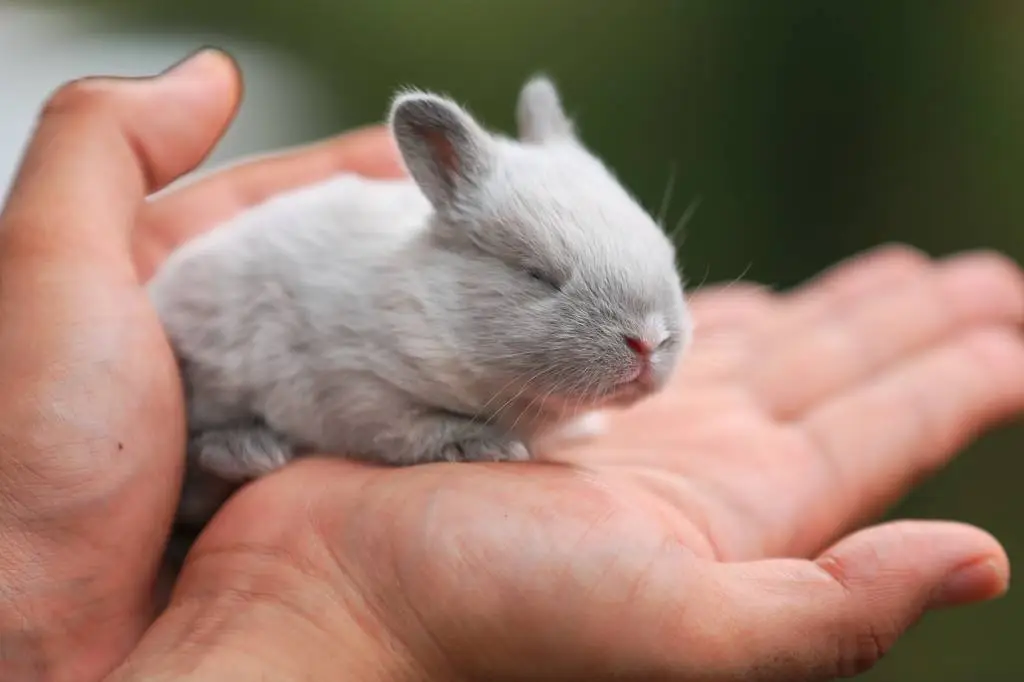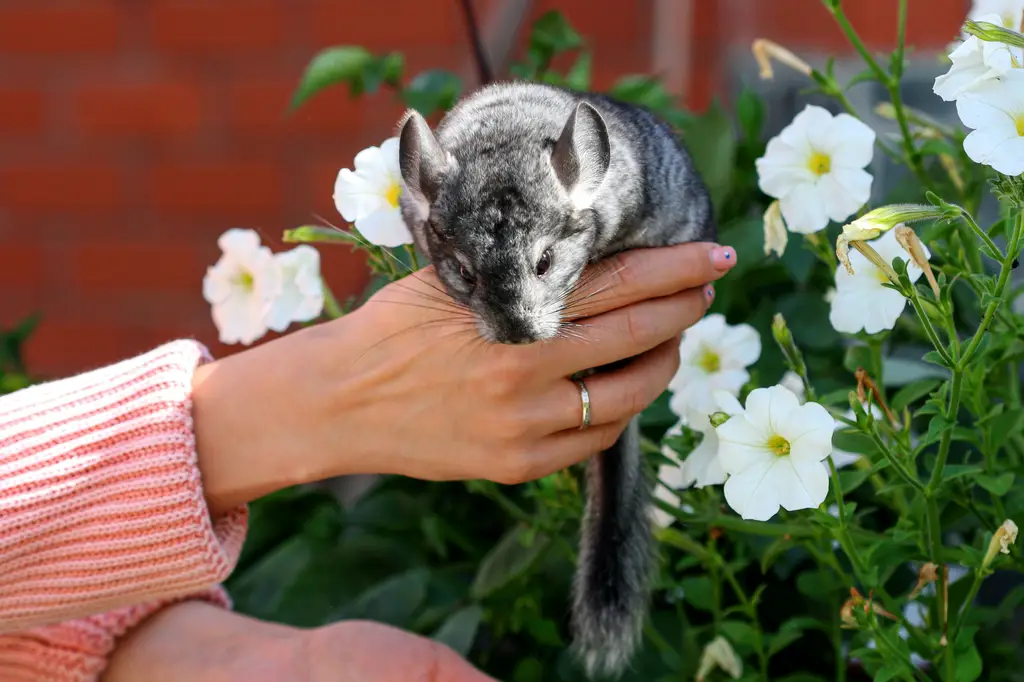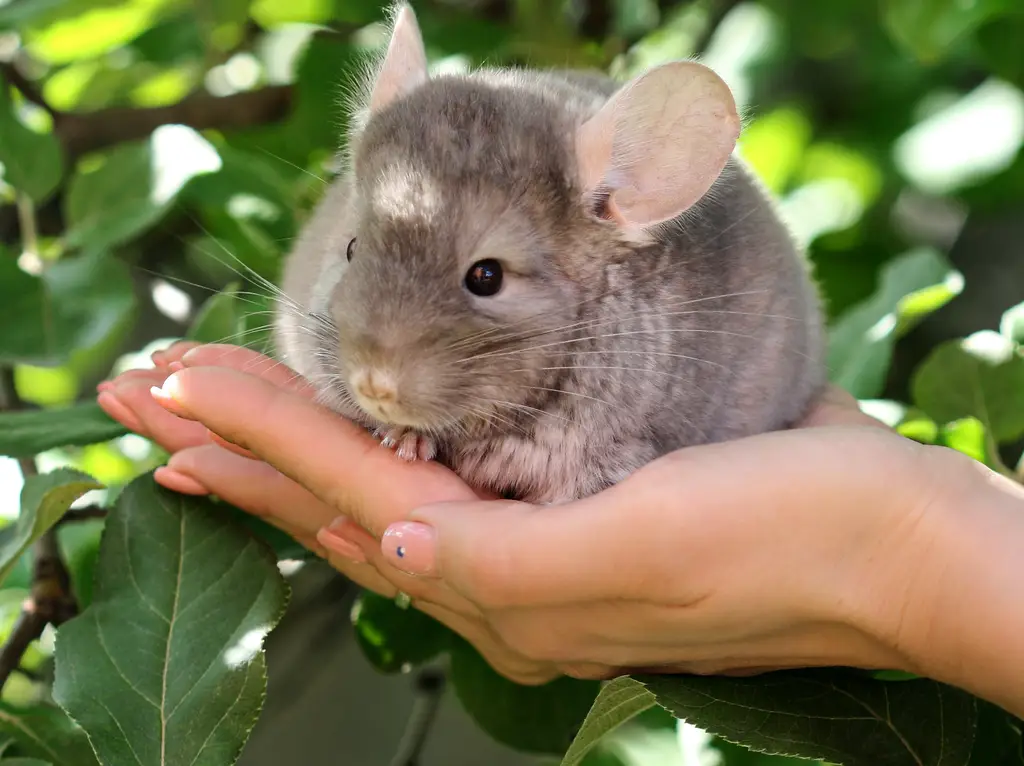If you’re thinking about adopting a chinchilla as a pet, one question you might be asking yourself is, “How long do chinchillas live?” This is an important question to consider, as it can impact your decision to bring a chinchilla into your home.
At The Insiders Views, we’ve done the research and gathered all the information you need to know about chinchilla lifespans. In this article, we’ll be discussing the average lifespan of chinchillas, as well as factors that can impact their longevity.
Let’s get started now!
Table of Contents
Unveiling the Unique and Fascinating Life Cycle of Chinchillas
Chinchillas have a unique life cycle compared to other rodents, thanks to their distinct characteristics and genetic makeup. From birth to adulthood, a chinchilla’s life is full of interesting milestones and stages.
The chinchilla’s gestation period is around 100 days, which is quite long in comparison to other rodents. However, once born, kits are born with their fur and can see right away. Kits will spend up to ten weeks with their mothers, where they learn essential social skills and are protected and kept warm. Despite being newborns, chinchilla kits are active and playful from the very beginning.
After eight to ten weeks, young chinchillas begin to wean themselves from their mother’s milk and protection. They are both playful and shy, making them ideal companions for older children or adults. At this stage, it’s important to group same-sex chinchillas together to prevent breeding. However, chinchillas thrive in large groups, and young chinchillas love to play with each other.
After a year has passed, most chinchillas are considered adults. They may still grow a bit, especially if they are active and eat well. During this stage, they are likely to build muscle, although it’s hard to tell due to their thick fur. Adult chinchillas are excellent companions for their playful nature and unique personalities. They are shy creatures and are nocturnal, making them ideal for those who prefer animals that are less likely to bite.
A chinchilla’s life cycle is fascinating, and each stage is full of unique characteristics and behaviors. From playful kits to shy adults, chinchillas make fantastic pets for those who are willing to give them the proper care and attention they deserve. By providing a safe and stimulating environment, proper nutrition, and regular grooming, chinchillas can live long and happy lives.

7 Factors That Can Affect Your Chinchilla’s Life Expectancy
Chinchillas are unique pets that can live up to two decades in captivity. However, various factors can impact their lifespan, and it’s essential to understand what affects their life expectancy to ensure their well-being.
-
Nutrition: The Foundation for a Long Life
Nutrition is crucial for a chinchilla’s health and longevity. A proper diet includes a mixture of fresh produce, high-fiber hay, and commercial pellets. Fresh hay should make up 75% to 80% of their diet. Without a balanced diet, chinchillas may experience digestive problems, such as constipation and gut infections, which can lead to fatal health issues.
-
Stress: A Silent Killer
Stressful environments, inadequate nutrition, and health problems can cause unnecessary stress, leading to physical problems such as heart attacks and sleep disorders. Reducing stress in a chinchilla’s life can help prolong their lifespan.
-
Overgrown Teeth: A Painful Condition
Chinchillas require a healthy diet to keep their teeth down to a manageable size. Without proper nutrition, their teeth may overgrow, causing a malocclusion, which can lead to infections, injuries, and difficulty eating.
-
Overheating: A Danger to Chinchillas
Chinchillas have dense fur to protect against the cold, but placing them in an excessively warm environment can increase their risk of heart attacks and strokes.
-
Choking: A Risk for Chinchillas
Chinchillas are at a higher risk of choking on objects and solid foods. Unlike dogs and cats, they cannot easily regurgitate, making it essential to provide them with appropriate food and toys.
-
Predators: A Threat to Chinchillas
In the wild, chinchillas are preyed upon by a range of larger animals, which can impact their lifespan. As pets, they should be protected from dogs, cats, and any other animals that may view them as potential prey.
-
The Runt of the Litter: A Risk to Chinchillas
Runts may not receive adequate nutrition before weaning, which can limit their development and shorten their lifespan. Proper nutrition and care can help ensure their well-being.
Understanding these factors can help you provide your chinchilla with a healthy and happy life, potentially extending their lifespan for many years to come

8 Tips to Extend the Lifespan of Your Chinchilla
Chinchillas are a popular choice of pet for many people due to their playful and social nature. However, it’s essential to provide them with the best possible care to ensure they live a long and healthy life. With proper attention to their needs, you can extend your chinchilla’s lifespan and enjoy more years of companionship with your furry friend.
-
Always provide access to something to chew
Chinchillas have continuously growing teeth, and chewing is necessary to keep them from growing too long. Without regular chewing, their teeth can develop sharp points that can cause pain, mouth sores, and abscesses. Providing them with a bundle of Timothy’s hay or a block of wood will encourage them to chew and keep their teeth healthy.
-
Give your chinchilla plenty of fiber
Fiber is a crucial nutrient for chinchillas, and it helps keep their digestive system healthy. A diet of high-quality hay, fresh produce, and commercial pellets will provide your chinchilla with the necessary nutrients.
-
Pay attention to your chinchilla’s behavior
Spending time with your chinchilla will help you get to know their personality and behavior. By recognizing their regular habits and behavior, you can easily detect any changes that might indicate a health problem. Prompt detection and treatment of health issues can extend their lifespan.
-
Find a veterinarian with experience caring for chinchillas
Regular visits to an experienced veterinarian will help ensure your chinchilla remains healthy. An experienced vet will know how to recognize signs of common health problems and provide treatment options. Choosing a vet with experience caring for chinchillas will ensure that they are familiar with the unique needs of these animals.
-
Seek immediate treatment for infections and wounds
Chinchillas are susceptible to infections and injuries that can cause serious health issues. Even minor wounds can become infected if not treated promptly. If you notice any signs of injury or infection, such as swelling or redness, seek veterinary care immediately.
-
Place your chinchilla in an air-conditioned room
Chinchillas have thick fur coats that protect them from the cold, but they can struggle to cool down in hot environments. Keeping them in a room with an average temperature of 60 degrees to 70 degrees Fahrenheit may help them live longer by preventing heat-related stress.
-
Consider getting at least two chinchillas
Chinchillas are social animals, and they thrive in groups. If you have space, consider getting at least two chinchillas so they can keep each other company. This will decrease the risk of loneliness and improve their overall well-being.
-
Give older chinchillas extra nutrition
As chinchillas age, they may become thinner, making it important to provide them with extra nutrition. Adding additional fresh produce or even pureed baby food to their diet can help them maintain a healthy weight and extend their lifespan.
By following these tips, you can extend your chinchilla’s lifespan and enjoy many happy years together.

FAQs
Q. How can I help my chinchilla live a longer life?
Ans: To help your chinchilla live a longer life, you can take the following steps:
- Provide your chinchilla with a healthy and balanced diet that is high in fiber and low in fat and sugar.
- Allow your chinchilla plenty of time outside of its cage to exercise and play.
- Give your chinchilla plenty of chew toys and wooden blocks to keep their teeth healthy.
- Ensure that your chinchilla has access to fresh, clean water at all times.
- Keep your chinchilla in a cool environment, preferably between 60-70 degrees Fahrenheit.
- Take your chinchilla to a veterinarian who specializes in small animals for regular check-ups and if you notice any signs of illness or discomfort.
Q. How do I know if my chinchilla is sick?
Ans: It is essential to know the signs of illness in your chinchilla so that you can seek medical attention promptly. Some common signs that your chinchilla may be sick include:
- Loss of appetite or weight loss.
- Lethargy or decreased activity.
- Discharge from the eyes or nose.
- Diarrhea or constipation.
- Difficulty breathing or wheezing.
- Changes in fur quality, such as bald spots or excessive shedding.
- Teeth grinding or other unusual vocalizations.
- Unusual or offensive odors from the chinchilla’s fur or cage.
If you notice any of these signs, take your chinchilla to a veterinarian who specializes in small animals as soon as possible.
Q. Can chinchillas live alone, or do they need a companion?
Ans: While chinchillas are solitary animals in the wild, they can live in pairs or small groups in captivity. It is generally recommended that chinchillas have at least one companion of the same sex to prevent loneliness and promote socialization.
Chinchillas who live alone may become bored, depressed, or develop behavioral problems, such as excessive chewing or aggression. However, it is important to note that chinchillas should be introduced to each other gradually and with caution to prevent fights or injuries.
Summary
Chinchillas are fascinating creatures with a long lifespan that can bring joy to any household. With proper care and attention, you can ensure that your chinchilla lives a long and healthy life. Providing them with a balanced diet, access to chew toys, regular exercise, and medical attention when needed can help extend their lifespan.
Dr. Chandrika Choudhary
Tweet
Additionally, paying attention to your chinchilla’s behavior and providing them with companionship can also make a significant difference in their overall well-being. So, if you’re considering getting a chinchilla, remember that with the right care, these adorable pets can be a loving and loyal companion for many years to come.
We would love to hear your thoughts and experiences with chinchillas! Feel free to share in the comments below.


